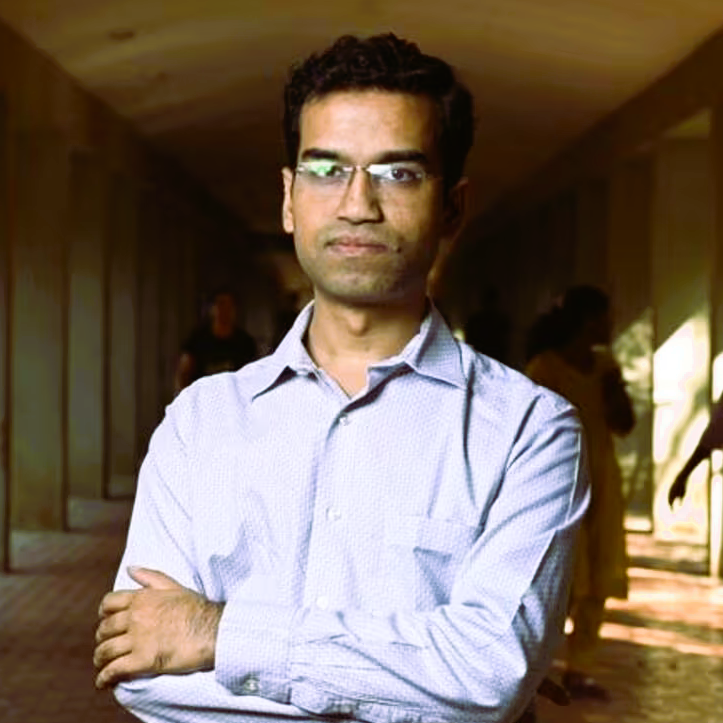Anupam Guha
Assistant Professor
·
Core Faculty
Anupam Guha is an Assistant Professor at the Ashank Desai Centre for Policy Studies at IIT Bombay who primarily works on AI, Al policy, Al and labour. Before IITB he has worked from September 2017 to April 2019 as Senior Researcher at Comcast Research, working on computational linguistics/machine learning problems to make their systems respond to language centered around media. He worked with embedding systems, question answering, topic models, and gathering knowledge from human chatter. He has a PhD, batch of ’17, in computer science from the University of Maryland where he worked on multimodal language and vision Al systems and computational linguistics. In his dissertation he investigated coreferences of multimodal entities and events. His current work in Al policy is informed by a technical understanding of Al and its relationship with labour and capital. He works to expand the critical lens on Al from the current instrumental and normative frameworks to one informed by an immanent critique of the political economy of techno-social systems.
Research Interests
Artificial IntelligenceArtificial Intelligence and LabourTechnology and SocietyPolitical Economy of AIDigital SocietiesDigital PlatformsAI and JusticeAI and Politics
Education
PhD Computer Science, University of Maryland, College Park, 2017
MS Computer Science, Georgia Institute of Technology, Atlanta, 2010
BTech Information Technology, Guru Gobind Singh Indraprastha University, New Delhi, India, 2009
MS Computer Science, Georgia Institute of Technology, Atlanta, 2010
BTech Information Technology, Guru Gobind Singh Indraprastha University, New Delhi, India, 2009
Publications
Jha, D., Jha, S. K., & Guha, A. · 2025 · The Indian Journal of Labour Economics
Jha, D., Jha, S. K., & Guha, A. · 2025 · Economic & Political Weekly, Vol. 60, Issue No. 4
Jain, A. & Guha, A. · November 2022 · Internet Freedom Foundation
Mohla, S., Bagh, B. & Guha, A. · 2021 · IJCAI 2021 Workshop on AI for Social Good
Mohla, S., Mohla, S., Guha, A. & Banerjee, B. · 2020 · IEEE International Conference on Systems, Man, and Cybernetics
Iyyer, M., Manjunatha, V., Guha, A., Vyas, Y., Boyd-Graber, J., Daumé, H. & Davis, L. · 2017 · Conference on Computer Vision and Pattern Recognition (CVPR)
Guha, A. · 2017 · Doctoral Dissertation, University of Maryland
Projects
Trust and Public AI: A Policy Analysis [assumptions & actions of the state on public use cases of AI & how they are altering the public domain.]
Ongoing
AI and Automation in the Indian Judiciary – a policy analysis
Ongoing
A Study in Intelligence: Mapping the Impact of AI on Indian Labour
Ongoing
